Our Policy Work
Visit Action Center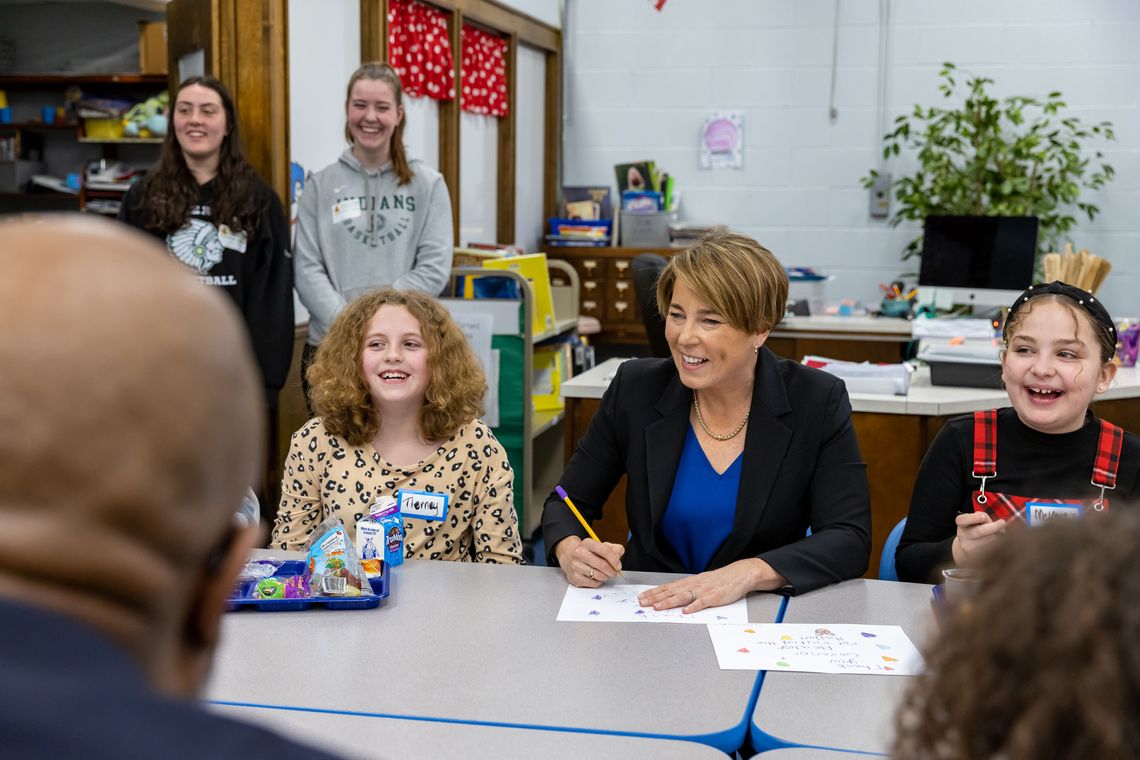
Policy change is the most impactful solution to address hunger
Project Bread understands that hunger can't be solved through stop-gap measures. Instead, our work seeks to provide sustainable, scalable solutions that permanently move the needle on ending hunger.
A COORDINATED EFFORT
Make Hunger History
We're mobilizing a first-of-its-kind coalition, including advocates, policymakers, businesses, service providers, individuals with lived experiences of hunger, and community members -— like you.
In September 2022, the Biden Administration held the first national conference focused on food insecurity in fifty years. The White House Conference on Hunger, Nutrition, and Health brought together nonprofits, food system and health care leaders, individuals with lived experience, and state legislators from across the country. Following the Conference, Project Bread convened hunger and poverty relief leaders from organizations across the state to chart a path to end hunger in Massachusetts and this coalition was formed.
Together, we'll craft innovative policies, challenge stigmas, and build a grassroots movement to change the system that leaves too many without the resources they need to feed themselves and their families.
By uniting our voices and resources, we will create and implement the roadmap to end hunger and make history in Massachusetts.
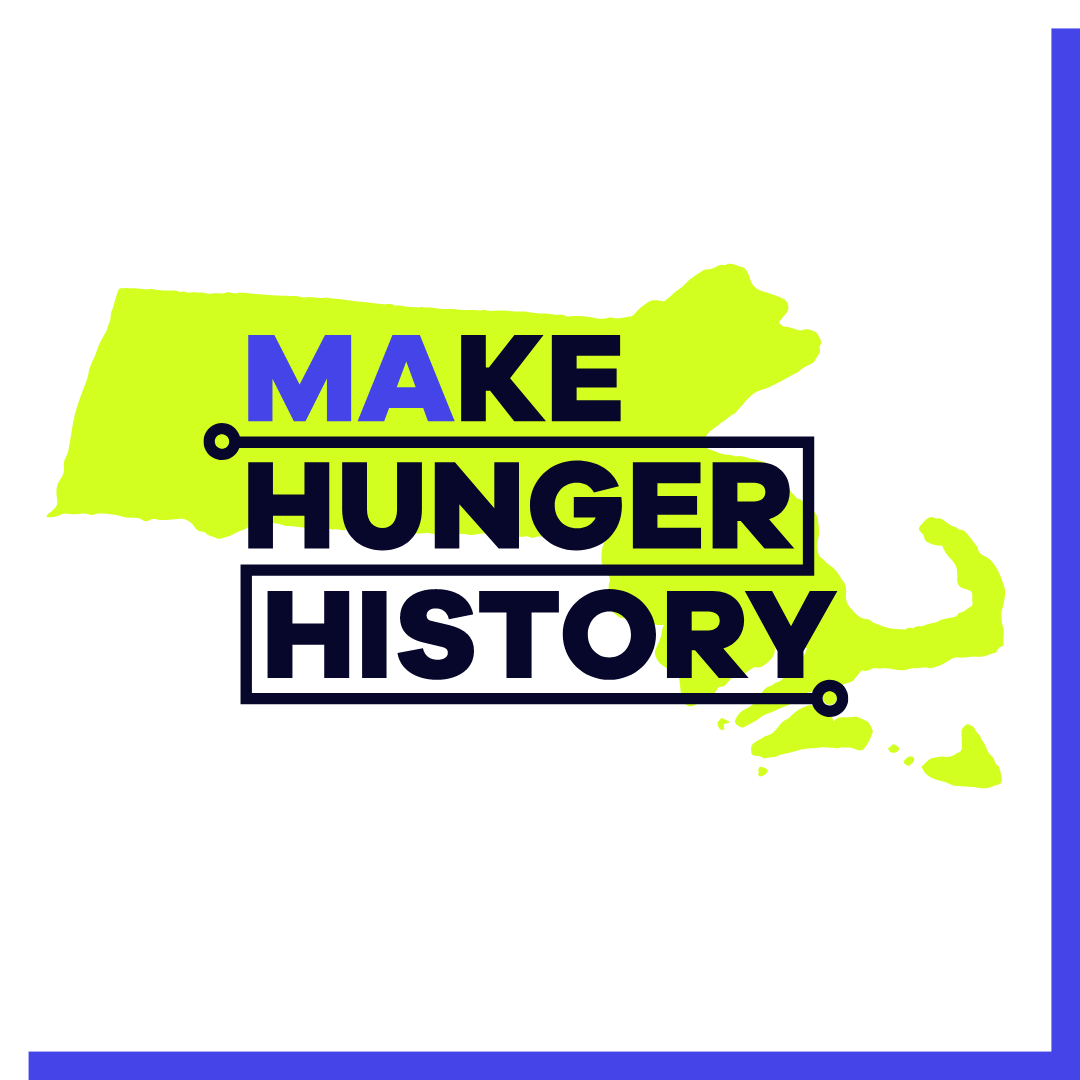
Action Center
Your legislators need to hear from you — let them know you want them to support these key bills or urgent policy actions to ensure equitable food access in Massachusetts by completing the action alerts below.
-
Use Your Voice NowFEEDING OUR NEIGHBORS
Make Ending Hunger a Priority in Massachusetts!
Right now, 1 in 4 families with children in Massachusetts report that they cannot afford the groceries they need. Project Bread has identified state-level bills that offer significant opportunities to reduce hunger in Massachusetts and make a difference in the lives of thousands of families— now, we’re tapping you in. Help get these critical bills passed to end hunger in Massachusetts!
-
Urge Legislature to Fully Fund School Meals For AllSCHOOL MEALS FOR ALL
Help Protect Funding for Permanent School Meals for All
Your advocacy secured a landmark investment to combat childhood hunger, making School Meals for All permanent in Massachusetts. While the Legislature and Administration committed to this program by making it permanent, they need to commit the funds annually. Let’s keep reinforcing that this investment is critical as budget revenues have fallen short of what was projected.
Our legislative priorities
2023-2024 Session Update
The Massachusetts Legislature is now in its second year of its 2023-2024 session. Nearly all bills have now been reported out of their original committee and out of the 13 bills, Project Bread identified as part of our state legislative agenda, 11 bills were reported favorably. This is a testament to the advocacy of the Project Bread team, our Action Team, and our many partners. This outcome is also an exciting sign our policymakers are recognizing that hunger is a political problem and can and should be addressed. With continued advocacy, we are hopeful to add to the exciting victory we achieved earlier this session with making School Meals for All.
Our State Policy Priorities
Current Initiatives
-
01.
School Meals for All - PASSED
The Feed Kids Coaltiion, led by Project Bread, succesfully advocated to make School Meals for All permanent in Massachusetts. Now every child will be able to continue receiving meals without worrying about cost or stigma.
Learn More
-
02.
Increase Access to Fresh Produce
Launched in 2017, the Healthy Incentives Program (HIP) allows SNAP recipients to purchase fresh fruits and vegetables directly from farmers. While the program has been a tremendous success, to date it has only been authorized through the state budget. An Act Relative to an Agricultural Healthy Incentives Program (H4387) would create a permanent program to ensure the program’s long-term sustainability. Project Bread has joined the Campaign for HIP Funding Coalition to advocate for this essential program’s permanency.
Learn More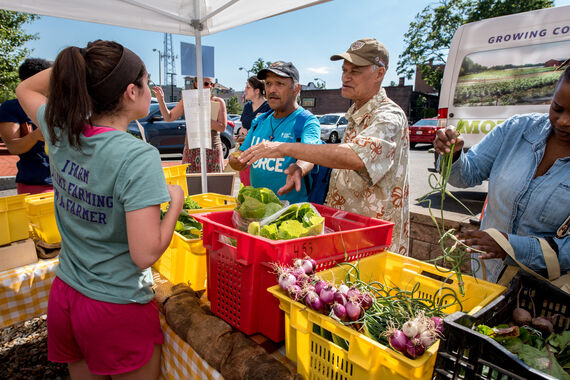
-
03.
Hunger-Free College Campuses
According to the most recent data, 37% of public university students in Massachusetts experience food insecurity. Project Bread has joined the Hunger-Free College Campus Coalition to support An Act Establishing the Massachusetts Hunger-Free Campus Initiative (H4453) which would provide capacity, guidance, and funding to public colleges and not-for-profit institutions of higher education take steps to alleviate food insecurity on campus.
Learn More
-
04.
Basic Needs Assistance for Massachusetts Immigrant Residents
This bill expands the access to nutrition and cash assistance programs to include immigrants lawfully residing within the U.S. An Act Establishing Basic Needs Assistance for Massachusetts Immigrant Residents (H.135/S.76) addresses inequality of existing federal SNAP rules, which prohibit many legally present immigrants from receiving benefits for five years. This legislation would allow immigrants to receive benefits regardless of their type of legal residency or duration. Project Bread has joined the Feeding Our Neighbors Coalition to call for equity in these critical programs.
Learn More
Our Federal Policy Priorities
Current Initiatives
-
01.
2023 Farm Bill
Every five years, federal lawmakers pass a Farm Bill. The last Farm Bill was passed in 2018 and expires this September. It includes funding for critical anti-hunger programs, including SNAP. Utilizing our direct experience with SNAP, Project Bread has drafted a series of 2023 Farm Bill recommendations for policymakers that center on protecting and strengthening SNAP.
Our Recommendations
We recognize that communities and people of color are disproportionately impacted by hunger because systemic racism leads to economic inequity and health disparities.
As part of our efforts to eradicate hunger, we advocate for both state and federal policy change to expand food access and program eligibility, clarify misconceptions about receiving support.
Featured Initiative
School Meals for All - PASSED
The Feed Kids Coaltiion, led by Project Bread, succesfully advocated to make School Meals for All permanent in Massachusetts. Now every child will be able to continue receiving meals without worrying about cost or stigma.

Join our Action Team
Our success comes from our engaged supporters. Sign up to receive action alerts to impact change and hunger policy updates to stay informed, including our biweekly news round-up, The Hunger Advocate.
Sign upTimeline
Our history of success
Explore the timeline below to see our how our research and advocacy has led to enduring change across the state to permenantly remove barriers to food access and reduce food insecurity in Massachusetts.
Community Action
1969
The Walk for Hunger
Patrick Hughes led the first Walk for Hunger from the Paulist Center in downtown Boston. An estimated 2,000 people walked 29.6 miles, raising $26,000 to help fund two hunger projects. The first pledge walk in the country, the Walk had two purposes: raise funds to help people experiencing hunger and stand together for social justice and social change that would eventually eliminate hunger. This is still true today and continues to be an annual force for change.

Child Nutrition
1994
Child Nutrition Outreach Program
Conducted the first evidence-based study of hunger among low-income families in the state in 1991 with the MA Department of Public Health and the MA Anti-Hunger Coalition, called the Childhood Community Hunger Identification Project (CCHIP). The findings of this study led to the creation of the Child Nutrition Outreach Program —a parternship between Project Bread and the Department of Elementary and Secondary Education (DESE) to support school meal programs and help children access healthy meals during the school year and summers.
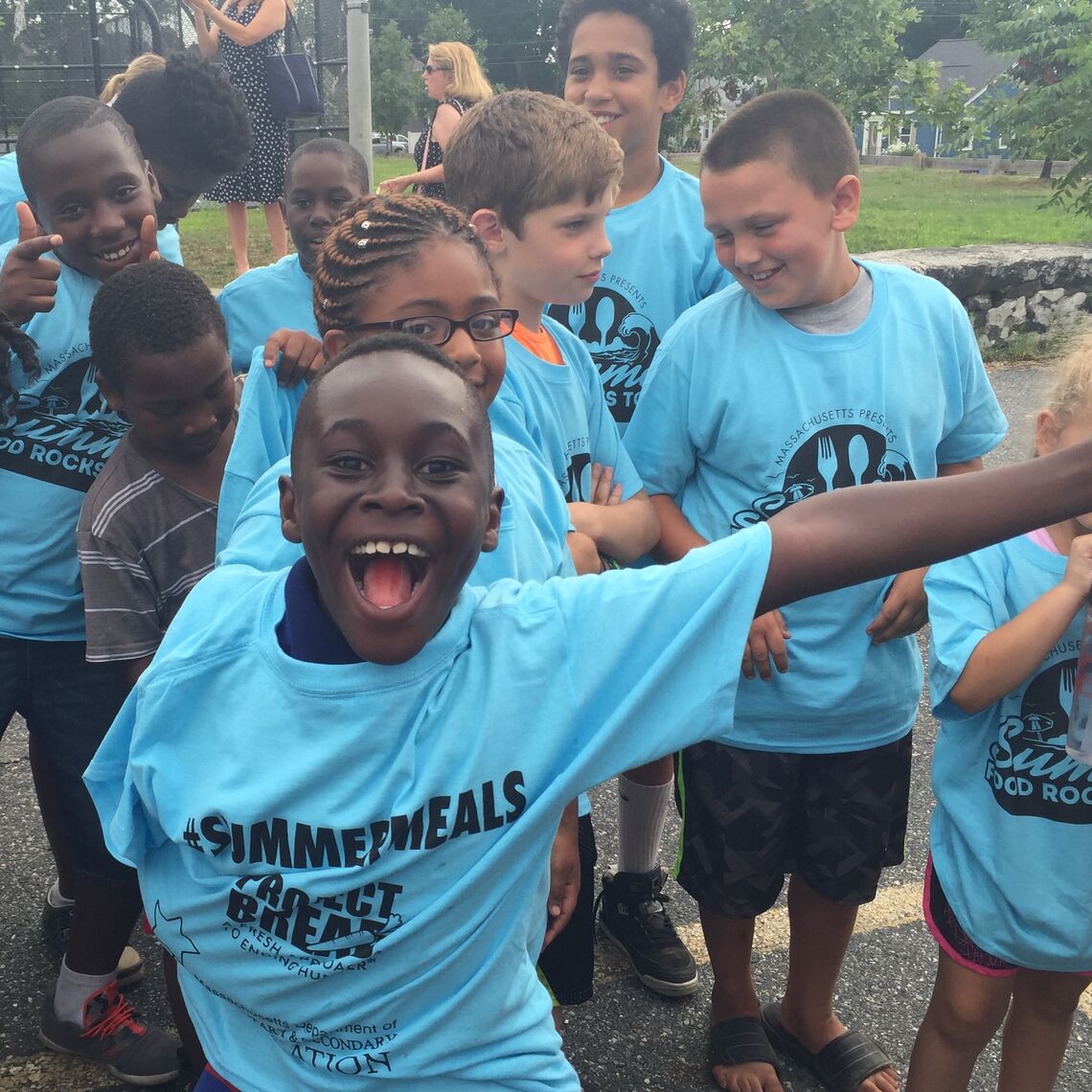
Child Nutrition
2000
Universal School Breakfast
Project Bread sponsored a study, conducted by researchers at Massachusetts General Hospital, that proved that children who ate breakfast at school were more likely to do well in math, have fewer absences, and require fewer trips to the school nurse. This work led to the bipartisan adoption Universal Breakfast in low-income schools throughout the state, which provides breakfast free of charge to all students regardless of household income.
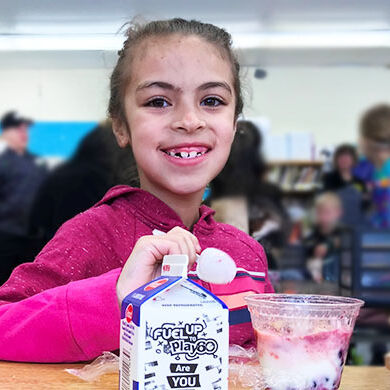
Child Nutrition
2003
Direct certification for free school meals
Piloted a collaboration between state agencies, called the Child Nutrition Access Project, that automatically enrolled children receiving SNAP into the free and reduced-price school meals program, reducing the need for multiple applications. This program is now statewide and enrolls hundreds of thousands of children for free school meals each year.

Equitable Access
2017
Healthy Incentives Program (HIP)
Teamed up with the MA Department of Transitional Assistance (DTA) to launch the state-wide Healthy Incentives Program, which helps low-income housholds use their SNAP benefits to shop at farmer's markets and local vendors to purchase more fresh fruits and vegetables.
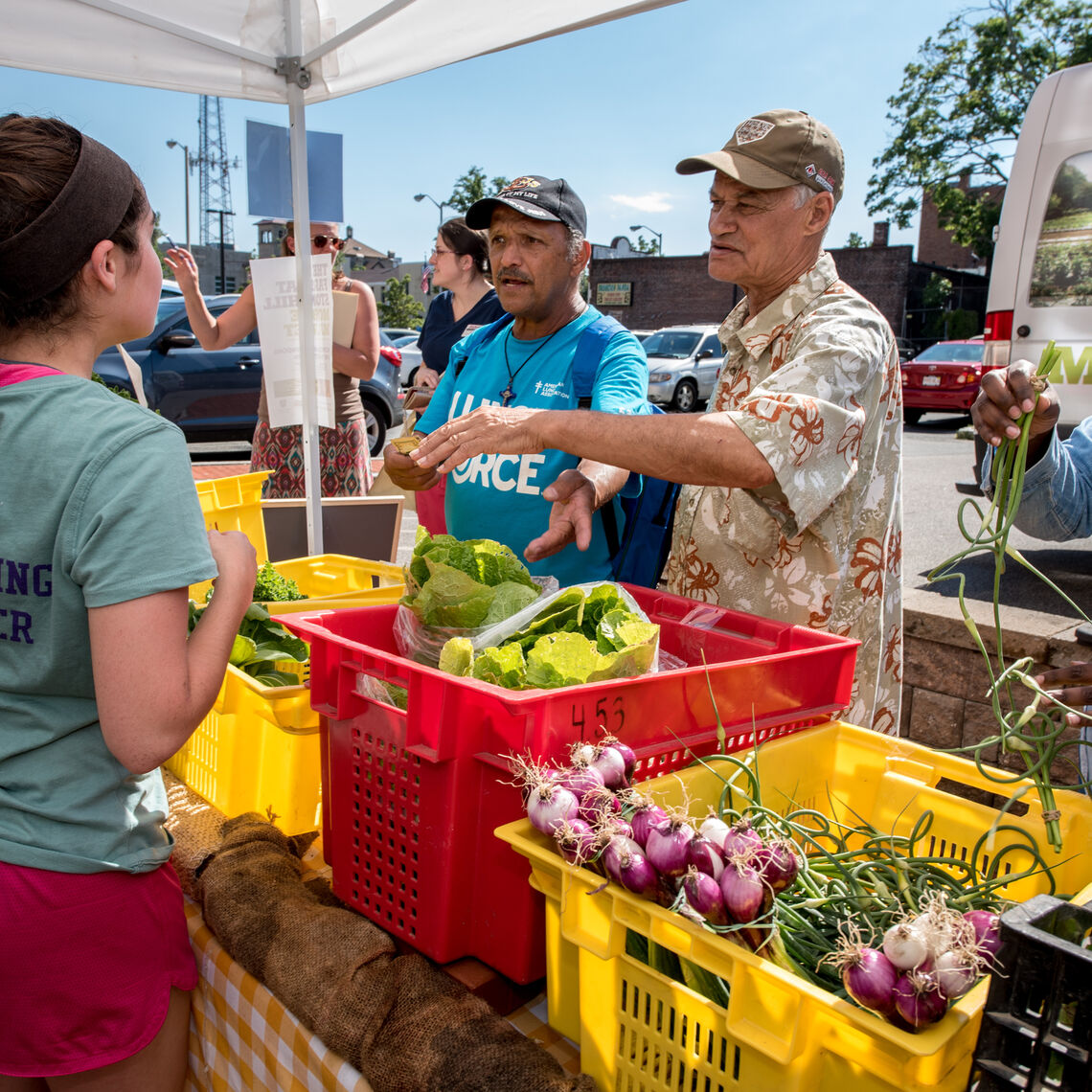
Child Nutrition
2020
Breakfast After the Bell
Project Bread played a critical role in ensuring that the Rise and Shine Coalition’s Breakfast After the Bell legislation — An Act Regarding Breakfast After the Bell — was successfully passed. Beginning in school year 2022-2023, all students who attend a school in which 60% or more of their students are eligible for free or reduced price school meals will be required to offer breakfast after the bell to all students.

Child Nutrition
2021
Addressing school meal debt
Project Bread was instrumental in the passage of An Act Promoting Student Nutrition, a bill that addresses both the root causes of unpaid meal debt as well as the impact unpaid meal debt has on students — prohibiting schools from certain meal debt collection practices that involves or penalizes the student. Alongside our partners at the MA Law Reform Institute, Project Bread was a champion of this bill, helping draft legislative language, providing data and research, and mobilizing advocates leading to this bill becoming law.

Child Nutrition
2022
Universal School Meals Extended for 2022-23 School Year
Thanks to continued advocacy efforts by the Feed Kids Coalition and Project Bread, Governor Baker signed a 1 year extension of School Meals for All through the 2022-2023 school year! This means that there is no cost to families for any student to receive school breakfast or lunch for the school year. Massachusetts is 1 of only 6 states in the nation to take this step forward. This momentous accomplishment could not have been possible without the tireless advocacy and organizing from Project Bread, our partners and bill sponsors Senator Sal DiDomenico and Representative Andy Vargas.
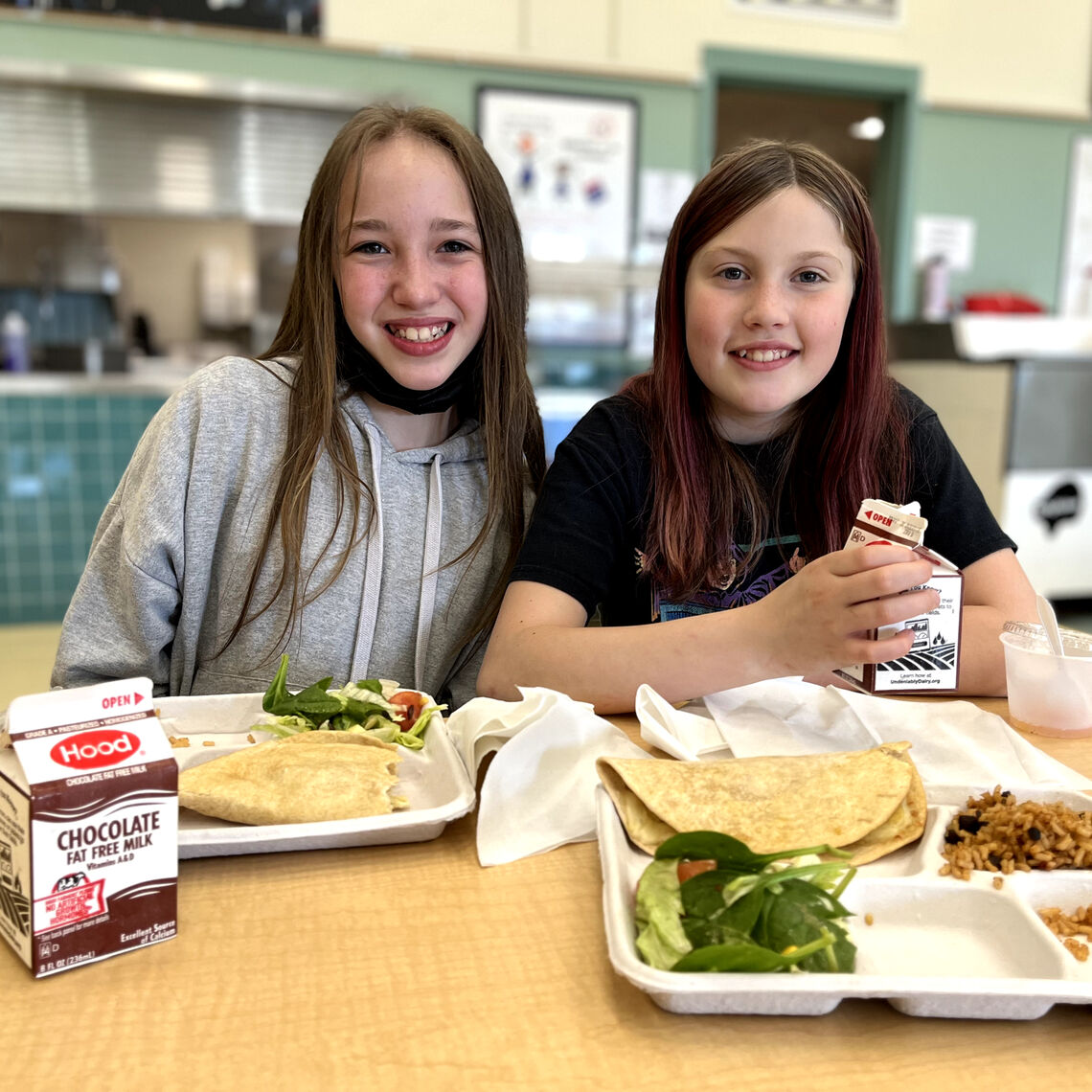
Child Nutrition
2023
Permanent School Meals for All
The Feed Kids Coalition, led by Project Bread, and bill sponsors Senator Sal DiDomenico and Representative Andy Vargas filed legislation, An Act Relative to Universal School Meals in 2021 to make School Meals for All, or universal school meals, a reality in Massachusetts. Over 4,200 individuals contacted their legislators over 18,000 times resulting over two-thirds of the Massachusetts Legislature signing onto this policy. Noticing the impact on schools and families across the Commonwealth and this groundswell of support, the Massachusetts House of Representative included permanent School Meals for All in its budget. On August 9, 2023, Governor Healey signed the budget into law making Massachusetts the 8th state to make School Meals for All permanent!
